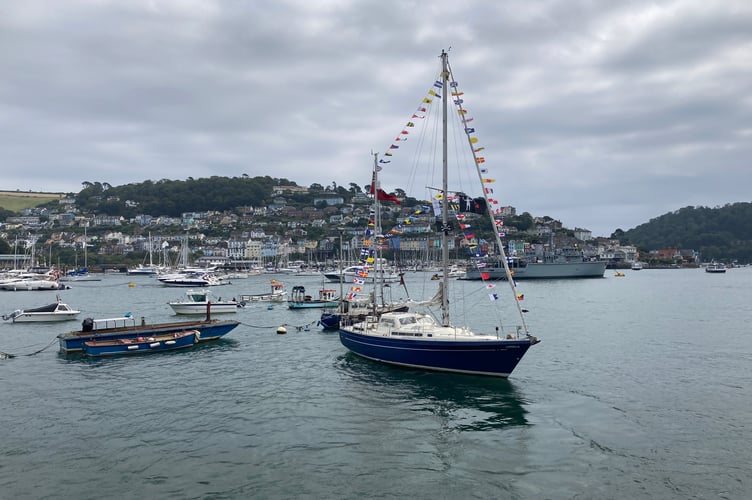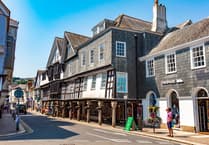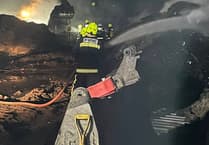Paul explained a bit of history: “Dartmouth used to be a big coaling port
“If you look at old pictures, then you have a line of ships going all the way from Warfleet Creek, all the way up to Greenway that had been laid up or here for coaling.”
There was more to the port than coal: “The very first ocean liner service from the UK to South Africa ran from Dartmouth.
“The Mayflower called in here on its way, the Crusades went from here.”
Paul is very keen on developing the commercial side of things:
“We had a weird-looking heavy lifting barge.
“It was here for quite a while trying to find a weather window to get round Land’s End.
It was taking great big power station generators and transformers up to a new power station being built in Pembrokeshire.
“We’ve got some buoys in the middle of the river that are really flexible, so we can take all sorts of different sizes and shapes of ships.
There’s also a lively yachting scene as Paul explained: “A lot of yachts that are local and based here, so there are four marinas on the river and a whole load of buoys as well.
“Then we get our visiting yachts, most fairly local, so they’re coming from Torbay, Salcombe, Plymouth, or Weymouth.
“Most of the rest are coming down from the Solent area, from Hamble, Lymington, Poole as well as France and as far as the US and New Zealand.
“We’ve got 18 visitor moorings in Dittisham so we can take up to 52 boats there.
“Sometimes we’re full, so we get a lot of visiting boats going further upriver as well.
Paul does want to encourage boats to moor even further upriver:
“We would like to improve facilities in Totnes to encourage more visitors up there.”
Fishing is another area where Paul would like to see expansion:
“We’ve got a fleet of a total of about 30 fishing boats but it is declining slowly.
“We’re trying to work out why considering other local fishing fleets seem to be doing quite well, “Our traditional fleet is crab boats, but we’ve got a lot of smaller day angling boats.
“One of the most interesting fishing boats we’ve got is a scallop diver James Kirkholdy
“He’s, we believe, unique in the world because he free-dives for scallops.
“He takes a deep breath, goes down to the bottom, picks up half a dozen scallops, comes back up to put them in a bucket on the surface.
“Compare that to the traditional way of catching scallops, which is absolutely devastating dragging a great big dredge across the seabed to just sort of rip them off the bottom—you couldn’t get much more low impact than diving like that.
“There are also new forms of fishing.
“Just starting up now in Galmpton, there’s a company looking into seaweed farming.
“There are all sorts of interesting businesses that we want to be part of and want to help develop in this area.”





Comments
This article has no comments yet. Be the first to leave a comment.